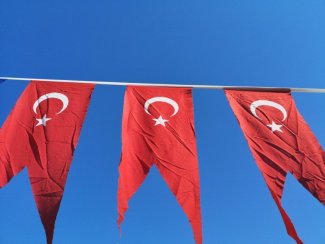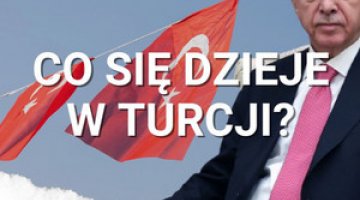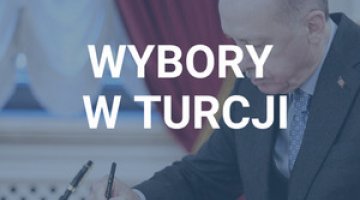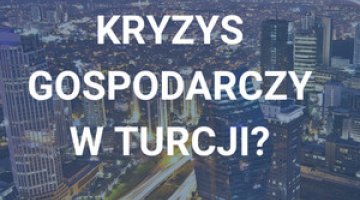Turkish dilemmas in the shadow of the war in Ukraine

The war in Ukraine forcefully evoked the question of Turkey’s international position and political strategy in its neighbourhood, but also in its relations with the West and Russia. In the first months of the aggression, Turkey reaffirmed its alignment with the West and its fear of Russian power and ambitions. The war also provided an opportunity for another attempt, not only to strengthen but also to redefine Turkish-Western relations – the lifting of sanctions imposed on Ankara and a stronger consideration of its security interests. Both the relative weakness of Russia, as revealed in the first period of the war, and the absence of the desired breakthrough in relations with the West have reinforced traditional and contentious tendencies in Turkish politics. The first is the desire to exploit Moscow’s weakness to deepen cooperation with it on better terms, which is reflected in the development of trade, including cooperation on the grain supply problems caused by the war. The second is aggressively manifesting Turkey’s interests in NATO. Included in this attitude is Ankara’s demand that some Alliance countries drop sanctions on the import of selected armaments by Turkey and adopt its counter-terrorism perspective, including on Kurdish groups affiliated to the Kurdistan Workers’ Party (PKK) and radical opposition organisations (including the Gülen Movement/FETO) that enjoy protection or support in the West. A demonstration of this policy was and still remains – despite the formal launch of the accession process by Sweden and Finland at the Madrid summit –Turkey’s continuing threat to block the enlargement of the Alliance by its national parliament. Finally, the third tendency relates to Turkey’s involvement in the Middle East, which should be seen as a necessity (the need to militarily dismantle the PKK) but also as a war-related opportunity due to the situation in Ukraine, which creates a sense of being able to strategically exploit the limitations of both Russia and the West in the region. Additionally, a serious challenge to the policy of balancing Russia and the West, and capitalising on their immediate weaknesses, is the internal situation in Turkey. In the midst of a growing socio-economic crisis and with the prospect of upcoming elections (scheduled for spring 2023), the government is more likely to make decisions based on ad hoc public sentiment and instrumentalise foreign policy issues. In practice, this expands the range of tensions in its relations, above all with the West.
War and Turkish politics
The Russian invasion of Ukraine took the Turkish elite by surprise and raised serious concerns – that is losing Ukraine as a partner, the threat of marginalising its own position in the Black Sea, and the possibility of Moscow regaining strategic initiative in areas of its rivalry with Ankara (including Syria, the Middle East and the South Caucasus). Russia’s limited successes in the early days of the conflict and the West’s firm stance prompted Turkey to actively, but discreetly, support Ukraine, including through the supply of equipment (the sale of Bayraktar drones as exposed by the media), the blocking of the Black Sea straits to Russian ships not belonging to the Black Sea Fleet (on 27 February under Article 19 of the Montreux Convention), and, finally, a firm acknowledgement of Ukraine’s territorial integrity (including Crimea). At the same time, Ankara did not decide – unlike most Western countries – to isolate Russia: it did not join sanctions against it, it left its airspace open, it entered into an intensive diplomatic dialogue with Moscow – and also Kyiv – for the de-escalation of the conflict (including telephone conversations between the presidents, two visits to Turkey by Russian Foreign Minister Sergey Lavrov, and mediation of Ukrainian-Russian talks).
Ankara’s policy of intensive cooperation with both sides of the conflict has continued to this day, but the nature of this has changed. The strength of the Ukrainian resistance and the scale of Western support for Kyiv have significantly lowered the risk of a strategic victory for Russia in Turkey’s eyes. At the same time, the determination and potential of the latter and the West’s self-restraint in engaging in the war seem to confirm Ankara’s conviction that the conflict will be protracted and a Russian defeat remains far from obvious. The threat of losing the strategic balance to Moscow has therefore so far been dismissed, if not entirely excised. On the other hand, the benefits of increased support for Ukraine so far seem unconvincing; instead, Turkey’s value in the eyes of an isolated Russia have increased Moscow’s potential gains from cooperating with Ankara.
In view of the relative reduction in national security threats from Russia, maintaining and developing – on better terms – economic cooperation for Turkey with Russia became essential. The first priority was to maintain the supply of Russian natural gas (almost 45% of imports in 2021), trade turnover and inflow of Russian tourists. In practice, the benefits of this cooperation have increased: trade has accelerated, barriers to economic exchange have been reduced (including the lifting of restrictions on the import of Turkish fruit and vegetables), including those related to Turkish investment in Russia. Meanwhile, Russian capital and business fleeing sanctions have begun to flow into Turkey (the number of companies with local capital has increased several times in recent months), and Turkish airlines are operating more flights. The parties have also declared their continued determination for Russia to build the Akkuyu nuclear power plant.
In a symptomatic way, Turkish policy manifests itself in the issues of blocked grain exports from Ukraine and Moscow’s impediments to its exports from Russia. Turkey is a traditional importer of cereals and cooking oils from both countries (in 2021, about 78% of its wheat imports came from Russia and about 9% from Ukraine; in the case of sunflower oil, it is about 50% and 15% of Turkish imports, respectively).The prospect of a supply blockade in the first weeks of the war manifested itself as a serious challenge, stimulating price increases in the market and exacerbating the social and political situation in Turkey. An additional dimension to the problem, raised in the media as early as the beginning of March, lay in fears of a spike in the prices of basic foodstuffs in the Middle East and the consequent threat of mass protests analogous to the Arab Spring of 2011.
Significant reassurance was provided, by virtue of the fact that: Turkey’s grain import volumes almost match the value of its re-exports (yet the country remains dependent on imports of sunflower oil); by the continuation of grain imports from Russia; and finally, by the far-reaching internationalisation of the problem of unblocking Ukrainian exports. The latter recently opened a window of opportunity for Ankara to play things out politically. For a short time (late May), when the issue of the corridors from Ukrainian ports secured by Western forces was raised, Turkey, which controls the straits, had a chance to significantly contribute to Kyiv’s strengthening. Eventually (late May/early June, culminating in talks in Ankara with Lavrov on 8 June), Turkey entered into a game with Moscow – discussing its intention to demine Ukrainian ports (which risked exposing Ukraine to Russian attacks from the sea) and working out, under the aegis of the UN, a mechanism for Turkish-Russian ‘convoys’ to secure grain exports. Thus, Turkey has set its sights not so much on supporting Kyiv as on its own interest, pursued in cooperation with Russia. Politically – vis-à-vis the Global South – the plan underlines Ankara’s (and Moscow’s) commitment to solving the food problem, while suggesting obstructionism on the part of Ukraine. Implementing it would militarily strengthen Turkey in the northern Black Sea basin as part of a Turkish-Russian duopoly (without foreign forces in the basin and at the expense of Ukraine’s security). In addition, Turkey would consolidate itself as the sole political intermediary and hub for Russian and Ukrainian grain trade on the Middle Eastern and Mediterranean routes. Ankara retains the hope of implementing this plan, regardless of the future operationalisation of the specific intentions currently under discussion with Moscow.
As it now appears, Turkish policy towards the parties involved in the war is shaped not so much by the conflict itself and Ukraine, but by Russia and its attempt to exploit its economic and regional weaknesses in the Black Sea, but also the South Caucasus and – above all – the Middle East.
Türkiye vis-à-vis the West
The war has forcefully confirmed and even reinforced Turkey’s ambivalence in its relations with Western allies. Ankara’s initial actions have shown that it sees itself on the side of the West, fears Russia and is prepared to actively contain it in Ukraine (permanent arms sales), but does not intend to flaunt this and burn bridges behind it in its relations with Moscow. Behind this essentially pro-Western stance, however, lies a very serious frustration that has been building up for decades on two levels. The first one concerns the protracted real problems with NATO countries. Among other things, Turkey has been subjected to US sanctions (the effect of the purchase of Russian S-400s resulting in its removal from the F-35 programme), suffers from strained relations on regional issues (including disputes with Greece in the Aegean Sea and repeated armed incidents), and has accused Western countries of disloyalty or hostility in relation to their protection or support of the radical opposition (freedom of action for organisations linked to the declared terrorist PKK and the Gülen Movement, the so-called FETO). The second level relates to a general sense of marginalisation, inadequate to Turkey’s potential and ambitions and, from its perspective, a steady weakening of Western authority and power.
During the first period of the war, positive attempts by Ankara to correct the status quo seemed to dominate. These included openness on issues of support for Ukraine, solidarity within NATO, accentuating its mediation capabilities (both with the parties to the conflict and the Global South, as evident in the Antalya diplomatic forum on 11–13 March). Turkey made a hopeful return to the ‘strategic mechanism’ of consultation with the US, and significantly softened its stance on disputes with Greece (promising talks on 13 March) and towards tensions in the Mediterranean. However, the concrete effects of these measures were clearly insufficient for Ankara. To make matters worse, Athens – concerned about the prospect of Turkey’s reinforcement – abruptly changed its foreign policy towards Turkey and in May again provoked tensions in the Aegean and then forcefully called on the US (in talks by Prime Minister Kyriakos Mitsotakis at the White House and the US Congress on 16 May) not only to maintain sanctions against it, but also to block the sale of F-16 aircraft to Turkey, which it seeks as compensation for the losses suffered by its removal from the F-35 programme.
An outlet for frustration and an opportunity to demonstrate its importance was provided to Turkey by the issue of the accelerated accession of Sweden and Finland to NATO. Arguably contrary to the informal arrangements, on 13 May Ankara openly voiced its opposition to the expansion of the Alliance to include these countries. The official reason for its disagreement with their membership was the allegation that they (in practice Sweden) were ignoring Turkey’s fundamental security interests, i.e. tolerating and supporting circles linked to anti-Turkish terrorist organisations – PKK, FETO and DHKP-C – and attempting to interfere in its internal affairs (sanctions on arms exports). Ankara has requested, among other things, the surrender of wanted ‘terrorists’, including a member of the Swedish parliament, and, over time, written guarantees to respect its fundamental security interests.
In a broader context, Turkey returned to the accusations it has lodged against other NATO states (including the US, but also Germany, France and Italy), and also expressed its reluctance to expand the Alliance with countries that were critical of Turkey and who diminished its importance in the organisation, and finally, it emphasised the strength of its voice by unfavourably assessing its own decisions on readmitting Greece into the military structures of the alliance back in 1980. Turkey’s opposition to the enlargement of NATO to include Sweden and Finland was met with irritation and disregard by Western commentators, and was reduced to an attempt to bargain specific sanctions concessions from the United States, while ignoring fundamentalist themes for Turkey. In the end, its resistance was overcome on the eve of the Madrid summit with the personal involvement of NATO Secretary General Jens Stoltenberg (and presumably through negotiations with Washington over the sale of F-16s) and, as a result, Sweden and Finland began the accession process. However, the nature of the event remains symptomatic: Ankara forced the signing of a trilateral memorandum, which – in its interpretation – includes, among other things, the recognition of the PKK, its related groups and FETO as terrorist organisations, commits Stockholm and Helsinki to changes in the law that take into account Turkish demands, and finally – announces the creation of mechanisms for conducting cooperation at ministerial and secret service level. According to the wording used in the memorandum, Ankara would be entitled to expect the entire Alliance to accept and support its actions against, for example, the PKK, including in the Middle East, and more broadly to have its special position recognised by NATO and the USA. A radically different and more restrained interpretation of the document on the part of Sweden, Finland and the Allies can be taken for granted. The stature of the signed agreement is also low. In practice, further misunderstandings and frustration on Turkey’s part are to be expected, as well as the possibility of Turkey further blocking the enlargement process – at the stage of parliamentary ratification of membership. Thus, Ankara’s key process of ‘self-empowerment’ in its relations with the West (symbolically reinforced by the introduction of the Turkish name Türkiye as the internationally recognised name of the state) does not meet with the expected understanding, while its main instrument of policy towards the EU and NATO remains blocking mechanisms and autonomous actions to force allies to respect its interests.
Escape to the front
Assuming a strategic stalemate in the war in Ukraine (no prospect of a quick and complete victory for either side; concentration of NATO and Russian attention and resources, keeping the latter isolated), the Middle East direction takes on a renewed importance for Turkey. A constant concern in this regard is its sense of threat from the PKK and its sister organisations (in Syria, the SDF and PYD), and an invariable response – regular action by Turkish forces to destroy them. In practice, Turkey retains considerable operational leeway in Iraq (intensive military operations in the last six months), though much less in Syria, where Kurds enjoy not only Russian but also US protection.
With Moscow and Washington’s shifting priorities, a vacuum appears to be emerging in the Middle East, which is realistically being filled by Iran. This impression, reinforced by concerns about the socio-political stability of the region (the problem of food shortages), increases Turkey’s attractiveness in the eyes of the local Arab states (e.g. energy in the case of Iraq), but also with Israel as a partner (currently there is a significant amount of hope for the normalisation of political relations between Tel Aviv and Ankara – Turkey is intensively trying to unfreeze dialogue and economic cooperation. Significant in this context is the announcement on 23 May of a Turkish offensive against the Syrian Kurds (in the Tell Rifaat and Manbij area), which is intended to serve both as a test of strength and a test of willingness to cooperate with Russia (its forces are stationed in the area of planned operations), the US and NATO (Ankara’s attempt to force a revision of the West’s attitude towards the Kurds and its regional ambitions), and finally – the Middle Eastern states. The conduct of the offensive and its eventual success would raise Turkey’s international profile, especially in the face of concerns about the stability of the Middle East and North Africa, and define the nature and real value of its cooperation/rivalry with Washington and the Alliance on the one hand, and Moscow on the other.
Internal conditions
Turkey’s ambitions, international calculations and concrete actions must undeniably be intertwined with its difficult domestic situation. The main problem is the financial crisis, which has been building up for years, with macroeconomic and social consequences (including the effects of inflation, which stood at 73.5% in May) and is now being reinforced by upheavals in the energy and food markets. This is superimposed on socio-political tensions linked to fatigue with 20 years of AKP rule, authoritarian tendencies and the high potential for violence in political life (several waves of terror with different ideological grounds, the 2016 putsch attempt, brutal mass repression by the authorities). The test will be the combined presidential and parliamentary elections, which, according to the plan, should be held in the symbolic year of 2023 (the 100th anniversary of the republic), although in the current situation snap elections cannot be ruled out. The AKP and the coalition MHP can count on 35–40% of the vote, the nationalist opposition (CHP and IYI) on an aggregate result of around 40–45%, and the leftist and pro-Kurdish HDP on around 7–9%.
In the international context, economic problems raise the importance of the West for Turkey – it belongs to the Western economic system, as this alone has the potential to stabilise and repair the financial system in the long term (at the price of costly reforms). At the same time, the importance of Russia is revealed, whether as a supplier of energy resources, a valuable counterparty (especially under sanctions, including grain re-exports, etc.) or a symbolically and socially important client of the tourism sector (despite pandemic restrictions, 4.7 million Russians visited the country in 2021). It is reasonable to assume that any decisions in this dimension will be taken by Ankara under the pressure of current domestic and economic challenges, which increases Russia’s attractiveness on an ad hoc basis.
In the context of the pre-election struggle, the greatest opportunity for the authorities – apart from defusing social tensions – remains the playing out of identity issues. The AKP’s fundamental line is invariably to restore and force recognition of Turkey’s historical role as a political and civilisational axis. For almost a decade, the party’s programme has been complemented by a strong nationalist trait, a thread previously appropriated by the current opposition (CHP, IYI). The only grouping with a strongly anti-nationalist programme is the leftist and pro-Kurdish HDP.
By accentuating – and provoking – anti-Kurdish sentiment, e.g. through a renewed intervention in Syria, the government has the chance to drive a wedge between the nationalist opposition and the HDP electorate, thereby derailing their chances of putting forward a joint presidential candidate and stymieing projects of cooperation between them during the parliamentary campaign (the oppositions informal cooperation led to the AKP’s defeat in the 2019 municipal elections in major cities). In the Kurdish-Syrian context, a potentially important concern will be the creation of conditions for the repatriation of some of the approximately 4 million Syrian refugees residing in Turkey, which would respond to growing strong anti-refugee resentment. A lively theme – especially for the nationalist opposition – remains the tensions with Greece and Cyprus, which gives the Turkish authorities another instrument for managing public sentiment (the authorities, among other things, suggest forcing Greece to demilitarise the Aegean islands – to which Athens is legally obliged under the 1923 Treaty of Lausanne). The aforementioned themes are part of a rather strong resentment in Turkey towards the West as a force blocking ‘Turkey’s greatness’, which means that tensions in relations with the West can form a tool of social consolidation for the ruling AKP. Direct relations with Russia do not arouse such emotions among voters. Moscow can indirectly influence the policy and position of the Turkish authorities through its actions towards the Kurds, Syria or in the South Caucasus.
Summary
The war in Ukraine – a conflict that will permanently redefine, among other things, the post-Soviet area, Russia and its relations with the West, but also the West itself, led by NATO – raises the importance of the ever-recurring question of Ankara’s place on the international stage. The last four months have reinforced the legitimacy of posing this question; so far, however, it has not yielded concrete answers. As before, Turkey remains a structural part of the West, yet unsuccessfully seeks to strengthen its position within it, and tries to solve most of the problems it defines as strategic – from general aspirations to reaffirm its own subjective ambitions on specific issues (such as those related to the Kurds and the Middle East), both on its own and against the West.
Nevertheless, the likelihood that any of Ankara’s desired breakthroughs could occur in the coming months – that is: in the West’s policy of unfreezing arms cooperation (the F-35 in particular is at stake), in the fight against political opponents (in the Middle East but also in Europe, the US and at home), in the Greek and Cypriot issues, and even more so in the dimension of vague aspirations for equality in relations – must at this stage be assessed as minimal. Turkey’s relations with the West appear to be permanently marked by distrust and frustration and the ad hoc nature of a non-aggressive solution to current crises, as exemplified – and likely to remain – by the process of NATO enlargement to include Sweden and Finland. The protracted negotiations over Ankara’s purchase of F-16s, and even more so the issues surrounding the F-35 programme and US sanctions, are also indicative of such aspects of the relationship. Without a significant change in the current conditions or approaches of both sides, this situation will lead to a permanent division.
As the aftermath of the war in Ukraine confirms, Turkey’s relations with Russia are equally complex, manifesting themselves in strategic rivalry with simultaneous cooperation in areas of the utmost importance. The continuation and development of this cooperation under the current conditions makes Ankara an important partner for Moscow, while it places Kyiv in the position of an inalienable, but nevertheless mere instrument in Turkish politics. Under the assumption that there will be no quick strategic settlements either in the war or in Russia’s relations with the West, Turkey will seek areas of cooperation with Russia, not only in the economic dimension but also in security issues (e.g. in the Middle East or the South Caucasus). Russia – weakened under Turkey’s best-case scenario – will remain a de facto and desirable element in the international balance. This trend should not be undermined by possible tensions and crises – in recent years in Syria, Libya, but also in Nagorno-Karabakh, there have been repeated military confrontations between allies or clients of both countries involving Turkish and Russian armed forces, which paradoxically only stimulated Turkish-Russian dialogue.
Irrespective of current conditions and calculations, Ankara’s policy is burdened with a huge burden of unpredictability. In part, this is related to the uncertainty about the further course of the war in Ukraine (concerns are particularly raised by a hypothetical – and very dangerous for Turkey – Russian victory), the future of the Middle East (including possible social upheavals) or the ongoing global economic difficulties (e.g. energy issues, food, the nature of deglobalisation processes). However, an important unknown is also the development of the internal situation: the effectiveness and consequences of resolving current economic, social and political problems and channelling accumulated social energy.




